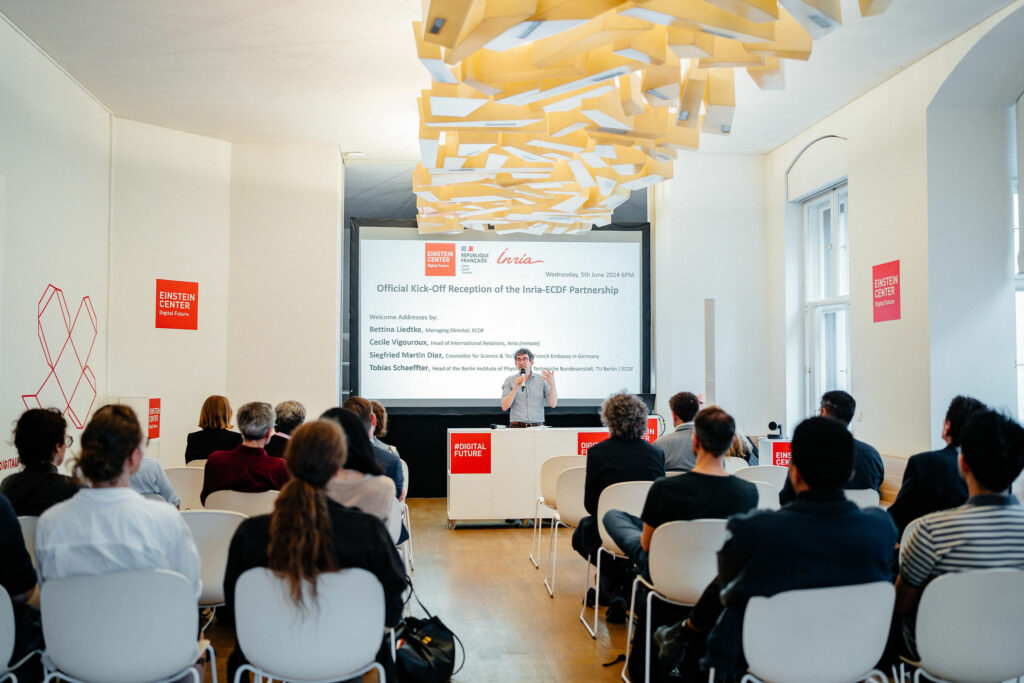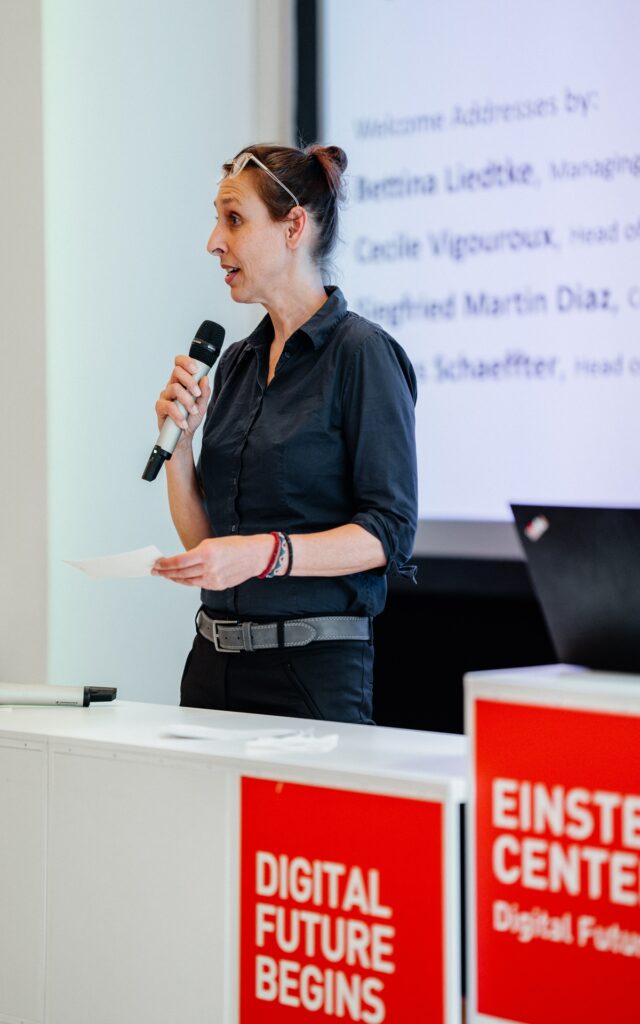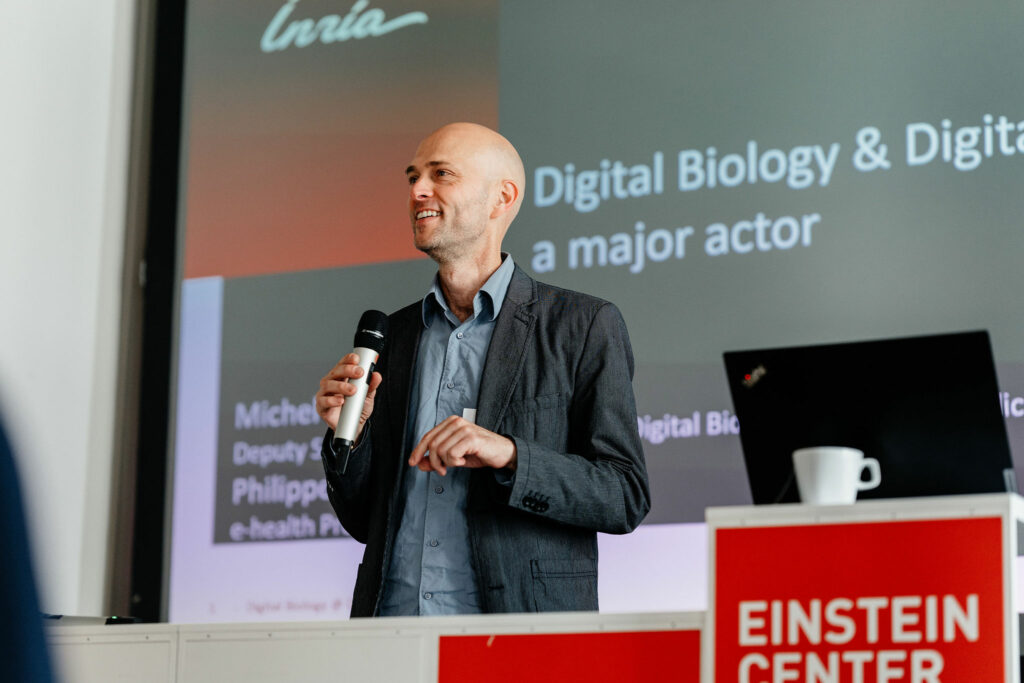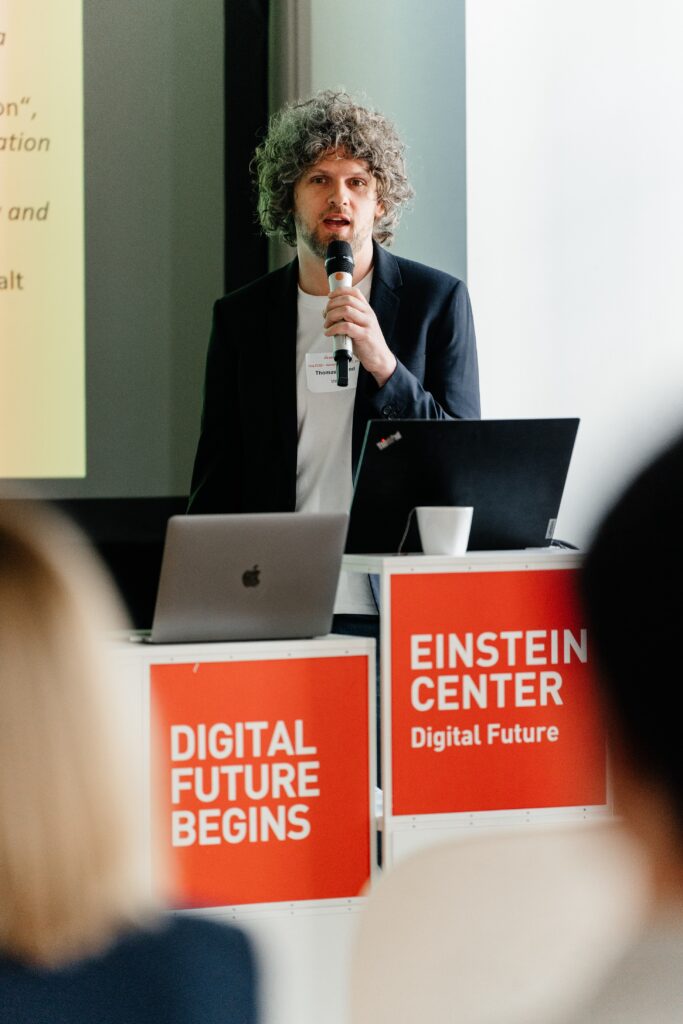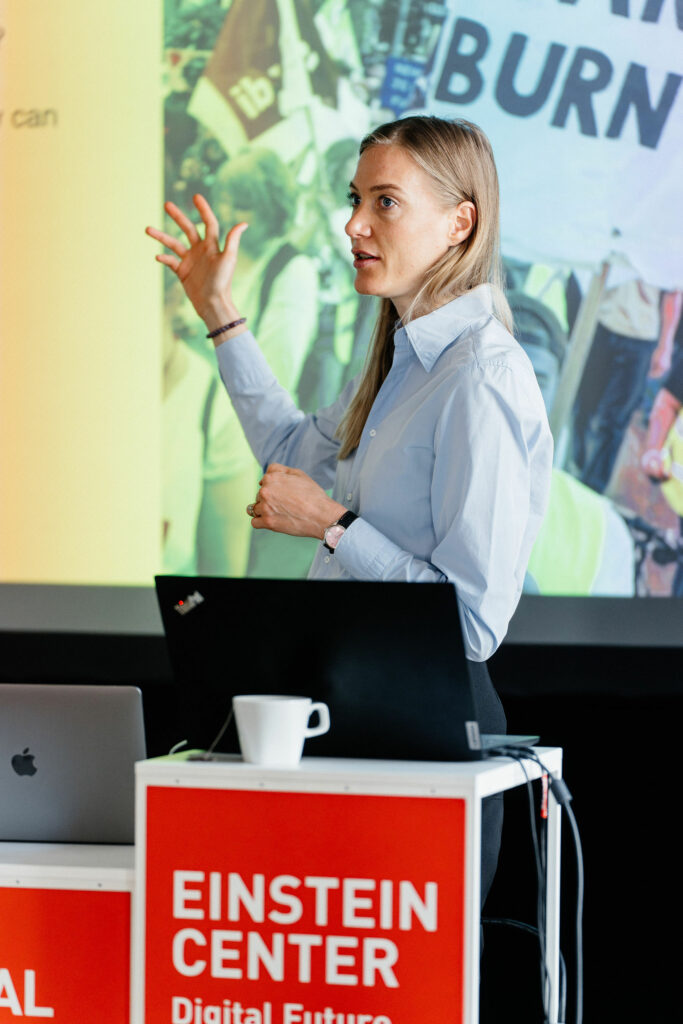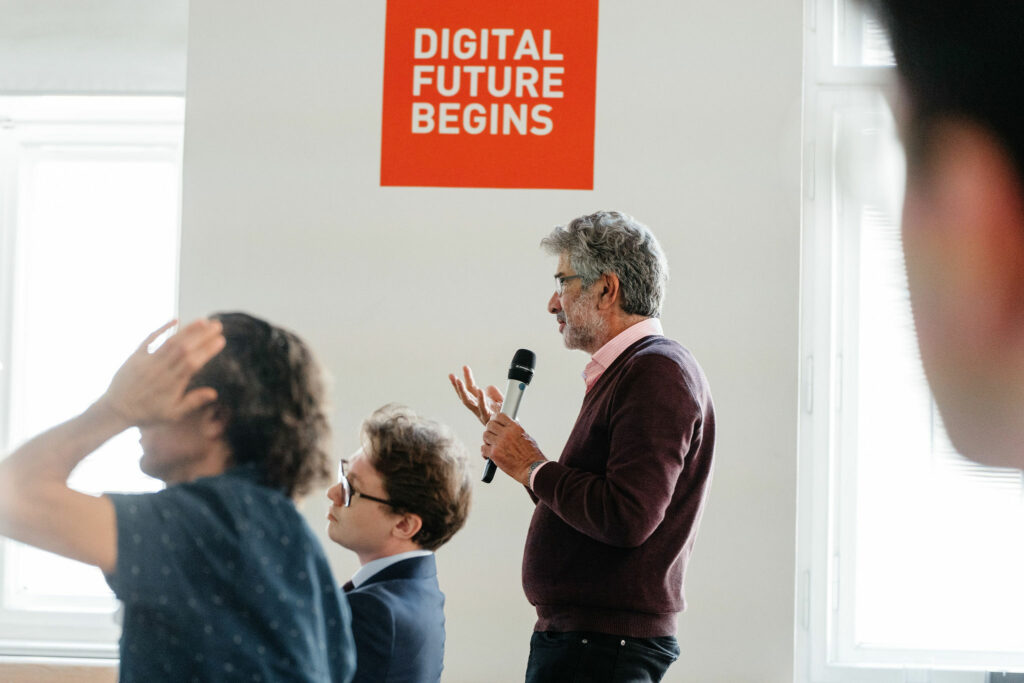Inria and the Einstein Center for Digital Future have joined in a partnership with the goal of fostering scientific exchanges between the two institutions and developing joint research projects in several fields related to digital sciences in the Berlin-Potsdam area.
The kick-off event launching the collaboration took place on June 5-7, 2024 at the Robert-Koch-Forum, in Berlin. The event included institutional exchanges and a scientific workshop covering a variety of topics including digital health, applied mathematics, Internet of Things, cybersecurity and and open science. The agenda (scroll below) recalls the details of speakers and links to the presentation slides.
Agenda
June 5th
Official Reception: Welcome Address & Diner Cocktail (18:00)
Overview & Instruments to Support Collaboration with Inria, Thomas Amand LL.M. – Inria
June 6th (morning)
Digital Health Session
Imaging and Image Analysis of the Craniofacial Region, Prof. Dr. Tabea Flügge – Charité / ECDF
Digital Biology & Digital Health @ Inria, Phillipe Gesnouin e-Health Program Director @ Inria
Modelling approaches to accelerate development and certification of novel medical devices, Prof. Dr.-Ing. Leonid Goubergrits – Deutsches Herzzentrum der Charité / ECDF
Reproducibility and trustworthiness in medical AI research, Dr. Olivier Colliot – Inria (Aramis) / CNRS
Quantitative Measurements in Medicine – Accurate Data for better Health, Prof. Dr. Tobias Schäffter – Head of the Berlin Institute of Physikalisch Technische Bundesanstalt (PTB), TU Berlin
June 6th (afternoon)
Digital Humanities, Open Science & Infrastructures Session
Open science policies and infrastructures: fostering cross-border collaborations, Prof. Dr. Laurent Romary – Director of Scientific Culture and Information @ Inria
Text+: An Infrastructure for Language Data within the German NFDI, Prof. Dr. Andreas Witt – Leibniz Institute for the German Language
Lexical resources in NFDI/Text+, Priv.-Doz. Dr. Alexander Geyken and Axel Herold – Berlin-Brandenburg Academy of Sciences and Humanities
Selected Infrastructure Activities around Language Data at DFKI, Prof. Dr. Georg Rehm – DFKI and HU Berlin
Why Open Science Needs Research Infrastructures and Vice Versa: The Case of DARIAH, Dr. Toma Tasovac – President of the DARIAH Board of Directors
Measuring futurability and The future in France and Germany – a comparison, Dr. Stéphane Grumbach and Sébastien Grappe – Inria
June 7th (morning)
Applied Mathematics Session
Deep-learning techniques for identifying collective variables of molecular dynamics, Dr. Wei Zhang – Freie Universität Berlin (FUB) and Zuse Institute Berlin (ZIB)
Charge transport in perovskites solar cells: modeling, analysis and simulations, Priv.-Doz. Dr. Patricio Farrell – Weierstrass Institute
Geometry-based simulation of self assembly & Master Program cooperation between Uni. Potsdam and Rennes Prof. Dr. Myfanwy Evans – Institut für Mathematik Potsdam
Applied Mathematics @ Inria, Prof. Dr. Christophe Biernacki – Deputy scientific director @ Inria for Applied Mathematics, Computation and Simulation –
June 7th (afternoon)
Internet of Things & Cybersecurity Session
Compact Asymmetric Cryptography with High Assurance for Constrained Applications, Prof. Dr. Benjamin Smith – Inria
Post-Quantum Cryptography, Prof. Dr. Marian Margraf – Fraunhofer AISEC
Secure Software with Formal Guarantees using Hax, Dr. Franziskus Kiefer – Cryspen
PTCC, a national cybersecurity transfer program, Dr. Michel Mauny – Executive Director of the PTCC, Inria
DevOps & Longer-term Security for Low-power Internet of Things, Prof. Dr. Emmanuel Baccelli – Inria / ECDF
(Closing remarks & Perspectives)

